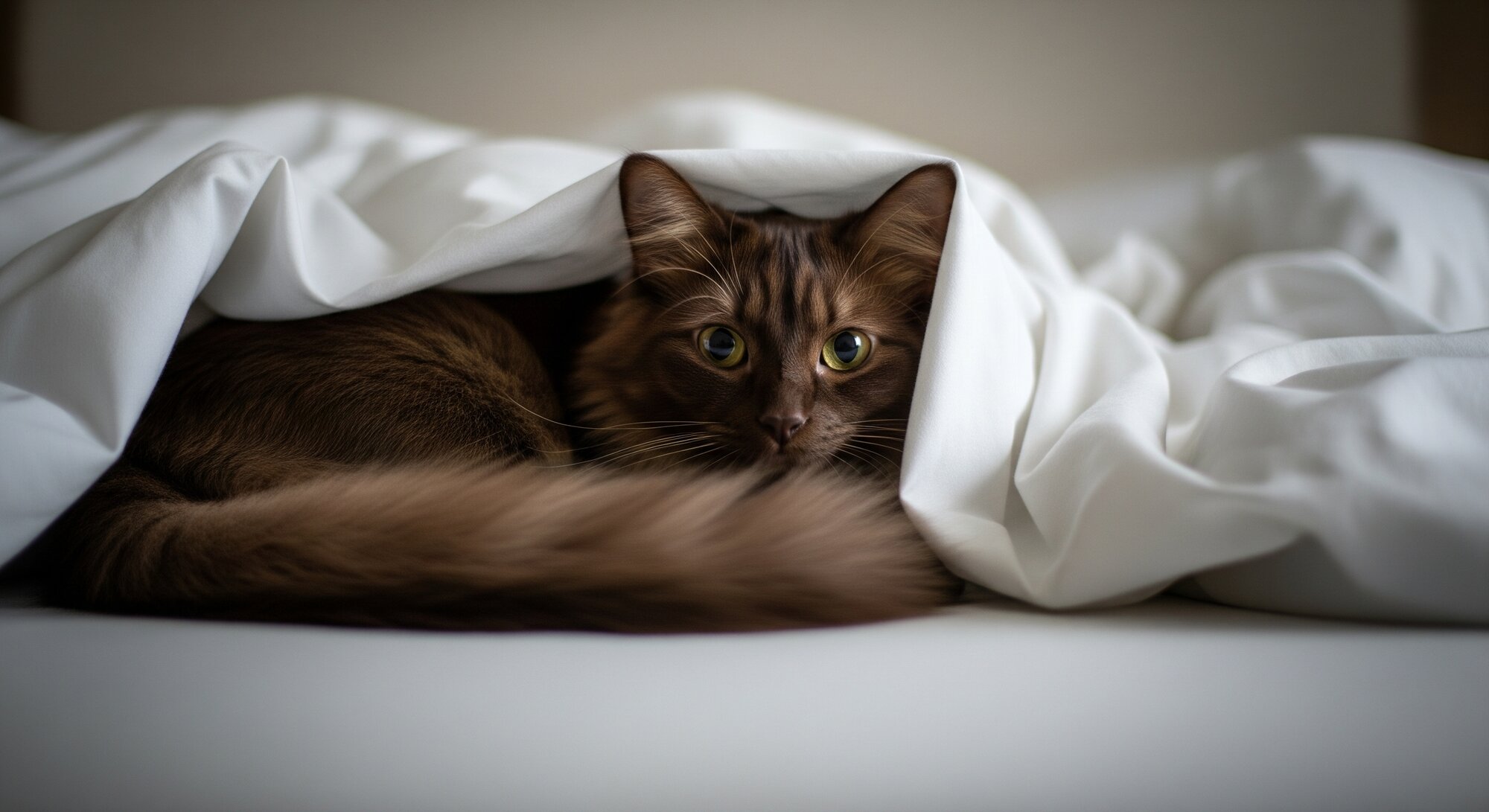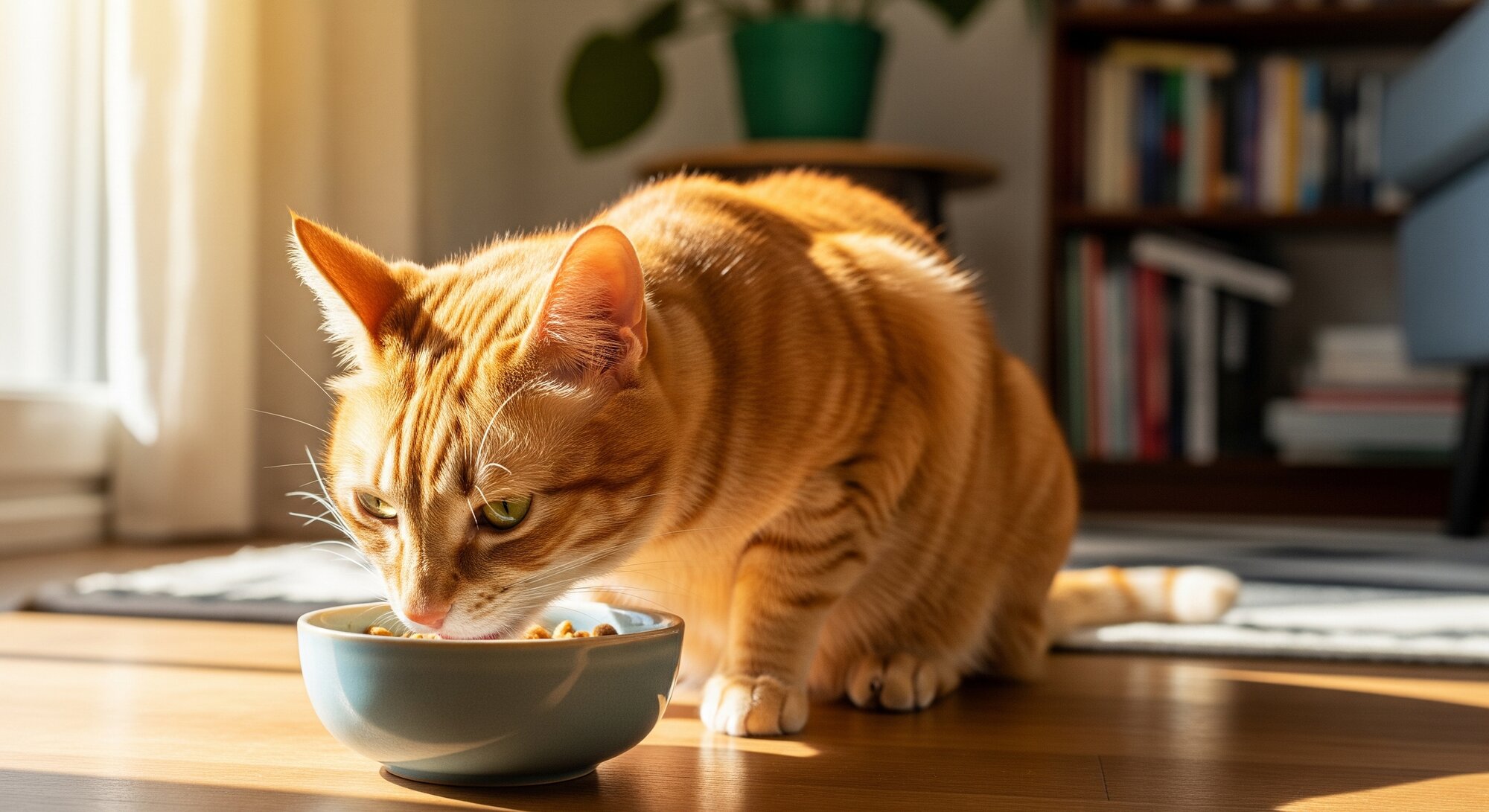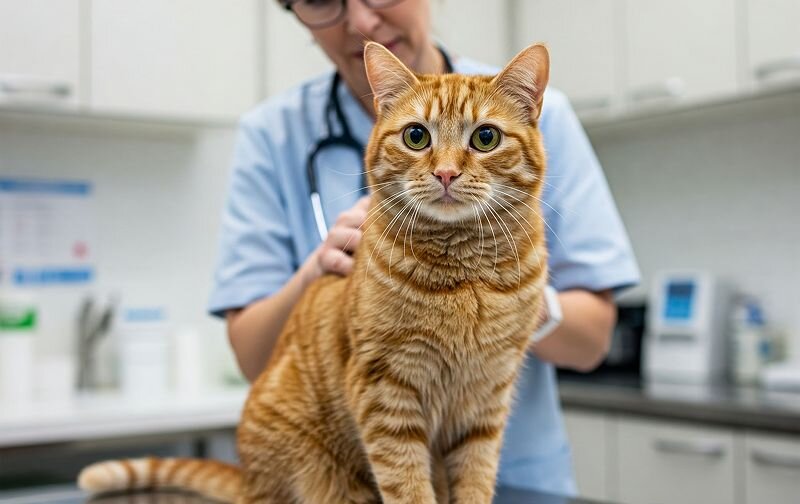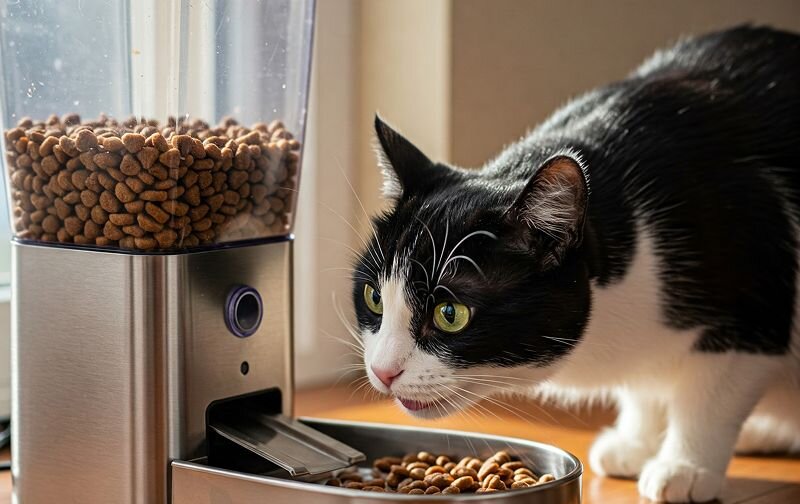Last Updated: 21/07/2025
Flatulence in Cats
Does your cat produce more backyard breeze than you'd like? Read on to see how you can help to reduce the flatulence and restore harmony to your household.
Author: Dr Katelyn Bailey BVSc (Hons)
Reading Time: 27 minutes - medium read
Does your cat produce a little more backyard breeze than you'd like? Have you had enough of the regular methane bombs in your home? Have you been blaming two legged members of the family before realising that Fluffy is the one behind the fluffs?
If this sounds familiar, then read on to see how you can help to reduce the toots and restore harmony to your household.
Is Flatulence Normal?

It is completely normal for cats to pass gas occasionally, and since it is generally silent and odourless, it goes unnoticed. However, excessive or malodorous gas usually indicates an underlying issue and is not considered normal. Excessive flatulence is fortunately much less common in cats than it is in dogs, but still poses a problem for some kitties (and those who have to live with them!).
What Causes Flatulence in Cats?

1. Swallowing too much air
Cats that scoff their food too quickly swallow more air than their slower paced counterparts. This air builds up in the gastrointestinal tract over time and is eventually (and unpleasantly!) released out the other end as gas.
2. Microbial imbalance
A healthy gut is full of a diverse mix of 'good' microbes that promote an ideal environment for digestion, immunity and overall wellbeing. An imbalance of these microbes, also known as intestinal dysbiosis, can result in an overgrowth of 'bad' gut bacteria. This can then lead to flatulence and other gastrointestinal signs (most commonly diarrhoea and/or bloating). Dysbiosis can occur due to a recent course of antibiotics, stress, a sudden diet change, or a parasitic infection, just to name a few. As you can imagine, these 'bad' microbes produce their fair share of unpleasant gas!
3. Sensitive stomach
While it's well known that a lot of dogs love to eat things around the house or yard, some cats share this unfortunate trait and it can be a battle to keep them away from undesirable foods! Spoiled food, as well as certain treats and table scraps, can cause an upset stomach and flatulence in some cats. Similarly, a low quality, poorly digestible diet can lead to chronic gastrointestinal symptoms. Some cats are quite sensitive to high levels of fibre or legumes in their diet, both of which produce gas when digested. Others may be sensitive to a high carbohydrate diet.
4. Food allergies
While a food allergy rarely causes flatulence only, it's an important option to consider especially if accompanied by other signs.
Cats can develop allergies to food proteins at any point during their lives, and can even become allergic to proteins in food they've eaten for years! Allergies are most often to very common proteins such as fish, chicken, beef and dairy (contrary to popular belief, most cats are lactose intolerant). It differs from a 'sensitive stomach' in that there is a true allergic response that occurs when the protein crosses the gut wall into the bloodstream, causing them to become sensitised to the protein. This allergic reaction most commonly manifests as itchy skin but can also lead to gastrointestinal signs, including flatulence.
Want to know more? Check out our article all about Food Allergies in Cats.
5. Intestinal disease
Gastrointestinal conditions like Inflammatory Bowel Disease, malabsorptive disorders, and intestinal cancers disrupt the gut's normal function which can lead to vomiting, diarrhoea, loss of appetite, flatulence and/or weight loss.
How is Flatulence Diagnosed?

While it's easy to tell that your cat is flatulent, what's causing the gas in the first place can be trickier to determine. To help figure out the underlying cause of your cat's flatulence, your vet can perform a range of diagnostics such as blood and faecal tests, imaging (eg. x rays or ultrasound) and/or diet trials. If your cat's gas is quite severe, or if they're showing other gastrointestinal signs, a vet check is a highly recommended first step.
How is Flatulence Treated?

Treatment depends on the underlying cause:
1. Swallowing too much air
If you suspect this may be the cause of your cat's flatulence, the key is to slow down their eating which can be done in a few ways. Firstly, it's recommended to try feeding them smaller meals throughout the day (for example, 3 to 4 small meals rather than one or two larger ones). If your schedule makes this difficult, an automatic food dispenser is a good solution. Slow feeding bowls are also a great option to help reduce eating speed and therefore lessen the amount of air being swallowed.
Interactive toys make for a fun and engrossing twist on the classic slow feeder bowl. They provide entertainment and enrichment along with prolonging your cat's mealtime. It's recommended to rotate the toys regularly (every few days or so) to prevent boredom. And finally, feeding your gassy cat separately to other pets can help to stop speed eating that's occurring due to food competition.
Want to know more? Check out our article all about the Best Automatic Feeders for Cats.
Prescription hypoallergenic diets for cats
While occasional flatulence in cats is normal, excessive or foul-smelling gas often points to an underlying cause. By addressing factors such as rapid eating, microbial imbalances, dietary sensitivities, or more serious intestinal diseases, you can significantly reduce your cat's discomfort. Simple changes like using slow feeders, introducing probiotics, or adjusting their diet can be highly effective.
For persistent issues, a consultation with your veterinarian is crucial to identify the root cause and find the right solution to restore harmony to your home.
Further Reading
Want to read more? Check out our other articles:
Flea Tick and Worming Guide for Cats
Best Sensitive Stomach Diets for Dogs and Cats
Improve your pet's digestive health using the power of the microbiome
History
Our experts continually monitor the health and wellness space and we update our articles when new information becomes available.
Tue 22 Jul 2025
Edited by Dr Gillian Hill BVSc (Hons)Dr Katelyn Bailey BVSc (Hons)
Veterinarian
Dr Katelyn Bailey graduated as a veterinarian from The University of Queensland in 2018 and has since worked in small animal general practice clinics in south-east Queensland. Her special interests include feline medicine and behaviour, preventative health care, internal medicine, research and senior pet care. Katelyn is a strong proponent of the human-animal bond and loves to hear about the quirks that make each pet so special.

